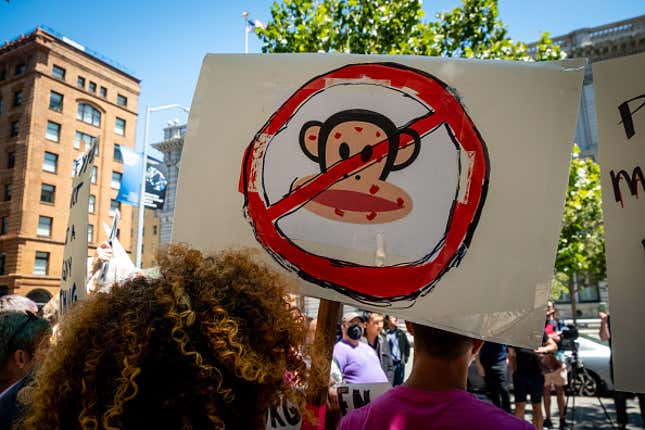
The World Health Organization recently announced they plan to rename the monkeypox virus out of concerns of stigmatization, according to NBC News. Once I saw the “monkey” in “monkeypox” there were two thoughts that came to mind: “It’s a monkey virus” and “Um…is that racist?” Apparently both of my thoughts were accurate in some way.
Allow me to explain.
According to the WHO, the monkeypox virus or MPV, was first detected in 1958 in a monkey used in a Denmark research lab. In 1970, the first human case, a 9-month-old boy, was found in the Democratic Republic of the Congo. Since then, it’s reported that 11 African countries have been experiencing human cases of monkeypox. Once it came to the States, information about MPV was heavily focused on where it came from (Africa) and the people most affected (LGBT men).
Organizations and advocates immediately responded to biased coverage of the virus outbreak in the US. The Joint United Nations Programme on HIV/AIDS (UNAIDS) called on the WHO to rename it because the overrepresentation of LGBTQ and Africans “reinforced homophobic and racist stereotypes and exacerbates stigma.” Recently, the WHO renamed the two families of the virus named after the regions they were concentrated in: the Congo Basin and West Africa. Some say this decision is past due.
“Journalists continue to paint the virus as a Black disease, a Black virus the same way that you see it in Africa. But that’s been a big problem with the name of this virus for decades - and the World Health Organization has really been slow stepping the name change for decades. Even since they made the announcement in June that they were talking about changing the name, it’s been very small strides,” said Victoria Kirby York, deputy executive director of the National Black Justice Coalition.
Come on now. A virus attacking African countries named after a monkey doesn’t look the best - even if said virus originally came from a monkey. If you think about it from the American point of view, the word “monkey” has a sinister history of its own as a part of the racism directed against Black people. We saw this coming.
“You still have people in my mother’s generation, my grandmother’s generation who are living right now who have felt the stain of being harassed and bullied and called a monkey, making those negative associations. So, we know that it’s very stigmatized, “ said Kirby York.
Though, when MPV broke out, the reporters were painting the picture as a “gay virus.” It wasn’t until after LGBT organizations raised their concerns about the stigmatization that suddenly the WHO, CDC and whoever else decided to do something about it. But will changing the name also change the way people respond to it?
Benjamin Mazer at The Atlantic wrote in an op-ed that it may not. Take HIV for example. Mazer wrote just because it’s not called ‘gay-related immune deficiency’ anymore doesn’t keep gay men from being ostracized over the condition.
Dr. Mike Ryan, executive director of WHO Health Emergencies Programme, essentially said the same for MPV.
“For the vast majority of people who deal with these diseases, experience them in the communities, the name per se is not a major issue. It’s the weaponization of these names. The problem is the misuse of these terminologies around the world, especially when they implicate racial slurs,” said Ryan via press conference.

